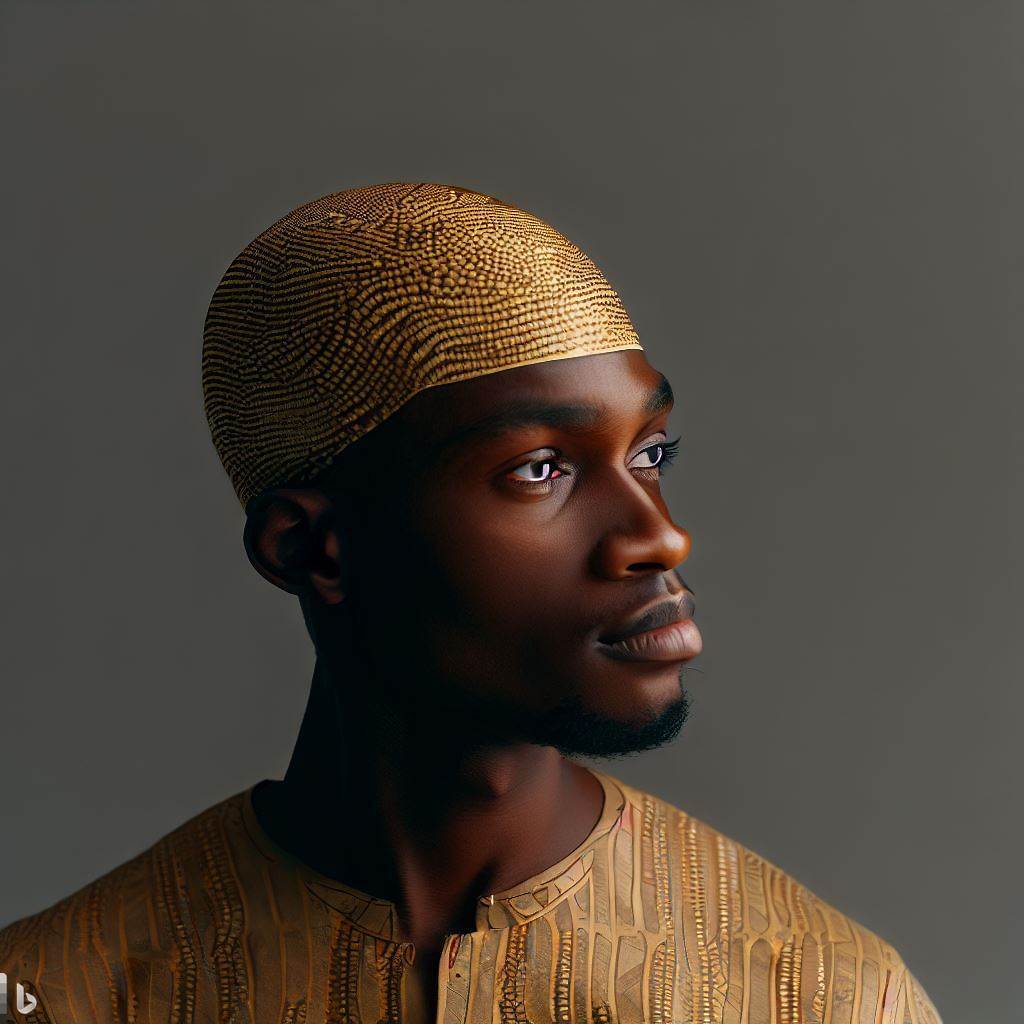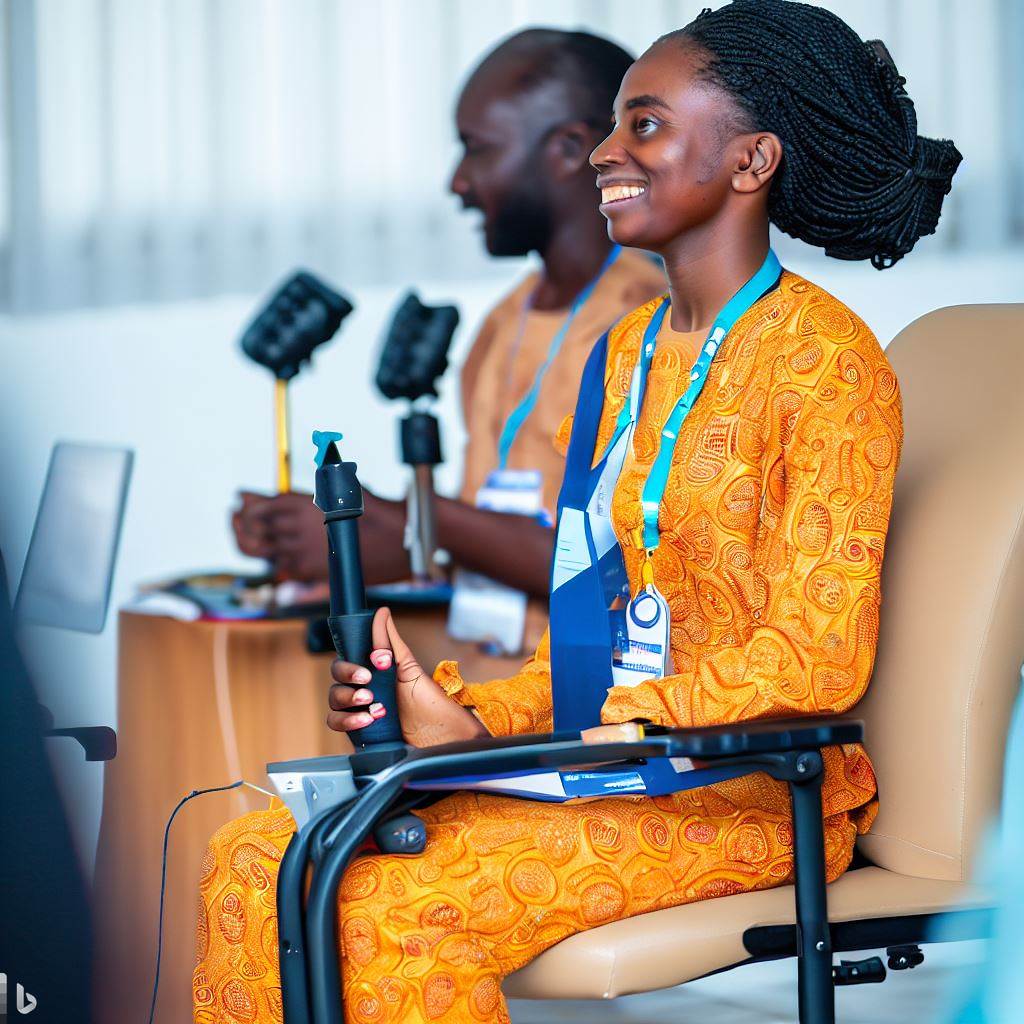Introduction
Nigerian culture has a profound impact on psychology practice, and this blog post aims to delve into this fascinating topic. The cultural values, beliefs, and practices within Nigeria have unique implications for how psychology is understood and applied in the country.
By examining these influences, we can gain a better understanding of the Nigerian context in the field of psychology.
Nigeria is a diverse country with over 250 ethnic groups, each contributing to its rich cultural tapestry. These cultural backgrounds shape the way individuals perceive and experience mental health, as well as how they seek help and treatment.
Additionally, religious beliefs play a crucial role in shaping attitudes towards psychological issues.
One significant aspect of Nigerian culture that affects psychology practice is the emphasis on community and collective well-being. Nigerians often turn to their families and communities for support and guidance, influencing their approach to mental health.
As the saying goes, “It takes a village to raise a child.” This collectivist mindset influences the importance of social support networks and community-based interventions in psychology practice.
Furthermore, traditional healing practices such as traditional medicine men are still widely trusted and sought after for mental health issues in Nigeria.
This integration of traditional practices with modern psychology presents unique challenges and opportunities for mental healthcare providers.
Understanding the impact of Nigerian culture on psychology practice is vital for providing effective and appropriate mental healthcare in the country.
By recognizing and respecting cultural values, beliefs, and practices, psychologists can better cater to the needs of Nigerian individuals and contribute to their overall well-being.
Overview of Nigerian Culture
“Nigeria, in West Africa, has diverse culture significantly impacting psychology practice. Understanding is vital for sensitive care.
Overview of Nigerian culture:
- Incredible diversity with 250+ ethnic groups.
- Rich tapestry of traditions, languages, and customs.
- Historical interactions and colonial past contribute to diversity.
Key cultural elements:
- Language: 500+ languages, unifying and defining identity.
- Religion: Christianity, Islam, indigenous practices.
- Traditions: Ceremonies, festivals, rituals fostering well-being.
Influence on personal and social identities:
- Cultural values shape attitudes and behaviors.
- Emphasis on respect for elders and communal living.
- Strong ethnic, tribal, and religious identities impact interactions and self-esteem.
Impact on psychology practice:
- Understanding culture essential for sensitive care.
- Appreciating diversity fosters positive therapeutic relationships.
- Improved mental health outcomes for Nigerians.
Read: The Current State of Pediatric Medicine in Nigeria
Nigerian Cultural Values and Beliefs
Importance of Community and Collectivism in Nigerian Culture
Nigerian culture places great importance on the concept of community and collectivism. In Nigerian society, individuals are not seen as separate entities but as integral parts of a larger community.
There is a sense of shared responsibility and interconnectedness among community members.
This communal mindset is evident in various aspects of Nigerian life, including decision-making, problem-solving, and even celebrations.
When making decisions, Nigerians often consult with the community and seek the opinions and advice of elders or respected individuals.
This collective decision-making process ensures that everyone’s voice is heard and that the best interests of the community are prioritized.
Moreover, Nigerians have a strong sense of solidarity and are willing to support one another in times of need.
This can be seen in the practice of communal labor, known as “mutual help,” where community members come together to assist each other with tasks such as farming or building houses.
This tradition fosters a sense of unity and cooperation among community members.
Significance of Respect for Elders and Hierarchy in Nigerian Society
Respect for elders and adherence to hierarchical structures are deeply ingrained in Nigerian society. Elders are revered and seen as the custodians of wisdom and knowledge.
They hold significant influence and are regarded as the guiding force within the community.
In Nigerian culture, it is customary for younger individuals to show deference and respect to their elders. This includes using appropriate titles when addressing elders and seeking their advice and blessings.
Disrespecting or dishonoring elders is considered a grave offense and can lead to social ostracization.
Additionally, Nigerian society operates within a hierarchical structure, where individuals hold different positions and statuses. This hierarchy is based on factors such as age, gender, and social standing.
It is important for individuals to understand and uphold their respective positions within this hierarchy, as it maintains order and harmony within the community.
Strong Spiritual Beliefs and Superstitions in Nigerian Culture
Nigerian culture is deeply rooted in spiritual beliefs and superstitions. Religion, in particular, plays a significant role in shaping the psychology and behavior of Nigerians.
The country is home to a diverse array of religious practices, including Christianity, Islam, and traditional African religions.
Many Nigerians have a strong belief in the existence of supernatural beings and spirits, both benevolent and malevolent. They engage in various spiritual practices, such as prayers, rituals, and charms, to seek protection and favorable outcomes.
Superstitions also abound in Nigerian culture, with beliefs in omens, witchcraft, and the influence of spirits on everyday life.
These spiritual beliefs and superstitions impact the psychology practice in Nigeria, as mental health professionals must take into account the cultural and religious beliefs of their clients. Understanding and respecting these beliefs is essential for effective therapy and counseling.
Emphasis on Extended Family and Kinship Ties in Nigerian Society
In Nigerian culture, family holds great significance, emphasizing extended family and kinship ties. The nuclear family connects with relatives.
The extended family structure offers individuals strong support, a sense of belonging, and influences decision-making and interactions.
In Nigerian society, there is an expectation of loyalty and mutual assistance among family members. It is common for individuals to provide financial and emotional support to their relatives, even if it means sacrificing their own needs.
This interconnectedness strengthens the bonds within the family and fosters a sense of collective identity.
Nigerian culture features strong community bonds, respect for elders and hierarchy, spiritual beliefs, superstitions, and emphasis on extended family.
These cultural values and beliefs significantly impact psychology practice in Nigeria, requiring mental health professionals to be culturally sensitive and adapt their approaches accordingly.
Read: Pros and Cons of the Pediatrician Profession in Nigeria

Delve into the Subject: Pros and Cons of Being an Occupational Therapist in Nigeria
Impact of Nigerian Culture on Psychological Practices
Influence of Collectivism on Counseling and Therapy in Nigeria
- Collectivism, a key aspect of Nigerian culture, greatly influences counseling and therapy.
- In Nigerian society, the emphasis is on the well-being of the community rather than individualistic needs.
- Counseling and therapy sessions often involve the patient’s family members or close friends.
- Therapists focus on addressing the social and relational factors that contribute to mental health issues.
- The communal approach helps individuals feel supported and connected during the therapeutic process.
- Therapists need to understand and respect the collectivistic values to provide effective counseling.
Read: Occupational Therapy Schools: Where to Study in Nigeria
Impact of Respect for Elders and Hierarchical Structures on Therapist-Client Relationship
- In Nigerian culture, respect for elders and hierarchical structures greatly influence the therapist-client relationship.
- Elders are highly regarded for their wisdom and experience, often seen as authority figures.
- Therapists must show deference and humility towards older clients to build trust and rapport.
- The therapist-client relationship may be more formal, with the therapist taking on a guiding role.
- The power dynamics may affect the client’s willingness to openly discuss sensitive issues.
- Awareness of these cultural norms is essential for therapists to provide culturally appropriate care.
Incorporation of Spiritual Beliefs and Traditional Healing Practices into Psychology
- Religion and spirituality play a significant role in Nigerian culture and are often integrated into psychology.
- Many Nigerians hold strong spiritual beliefs and rely on traditional healing practices for mental health.
- Therapists may incorporate religious rituals, prayers, or meditation into therapy sessions.
- This integration acknowledges the importance of spirituality in the healing process.
- Understanding and respecting these beliefs can enhance the effectiveness of psychological interventions.
- Therapists must strike a balance between respecting cultural practices and adhering to ethical guidelines.
Importance of Considering Family Dynamics and Kinship Ties in Therapy
- In Nigerian culture, the family is considered the basic unit, and kinship ties hold great importance.
- Family dynamics significantly impact an individual’s mental health and well-being.
- Therapists need to involve family members in the therapy process to address intergenerational issues.
- Understanding the roles and responsibilities within the family helps therapists identify underlying factors.
- Successful therapy often involves improving family relationships and enhancing support systems.
- Recognizing and respecting the intricate family dynamics is crucial for effective psychological practice.
Nigerian culture has a profound impact on psychological practices in the country. The collectivistic nature of Nigerian society emphasizes the importance of community in counseling and therapy.
Respect for elders and hierarchical structures shapes the therapist-client relationship. Spiritual beliefs and traditional healing practices are often incorporated into psychology.
Family dynamics and kinship ties are vital considerations in therapy. By understanding and respecting Nigerian culture, psychologists can provide more culturally sensitive and effective care.
Read: Essential Steps to Becoming a Pediatrician in Nigeria
Challenges and Opportunities for Nigerian Psychologists
Challenges faced by Nigerian psychologists in reconciling Western theories with cultural beliefs
Nigerian psychologists face challenges in integrating Western psychological theories with cultural beliefs.
- The language barrier: It hinders accurate translation and application of Western psychological concepts in Nigerian culture.
- Cultural Stigma: Some Nigerians may view seeking mental health services as a sign of weakness or taboo, hindering effective treatment.
- Limited Research: Most psychological theories and interventions are based on research conducted in Western contexts, which may not fully address the unique cultural factors in Nigeria.
- Lack of Cultural Validation: Nigerian clients may not relate to Western psychological concepts, leading to a lack of engagement and limited effectiveness in therapy.
- Ethnocentrism: Psychologists trained in Western theories may dismiss or overlook cultural beliefs that are important to Nigerian clients, leading to misdiagnosis or ineffective interventions.
Opportunities for cultural adaptation and collaboration between Western and Nigerian psychology
While challenges exist, Nigerian psychologists can leverage opportunities for collaboration and cultural adaptation.
- Integration of Indigenous Knowledge: Nigerian psychologists can explore traditional healing practices and incorporate relevant aspects into therapy, promoting a more holistic approach.
- Collaboration with Traditional Healers: Partnering with traditional healers can enhance understanding and promote culturally appropriate interventions for mental health issues.
- Training and Education: Nigerian psychologists can receive training that incorporates both Western theories and local cultural knowledge, allowing for a more comprehensive understanding.
- Research on Nigerian Context: Conducting research specific to Nigeria can contribute to the development of culturally sensitive interventions and indigenous psychological theories.
- Advocacy and Awareness: Nigerian psychologists can advocate for mental health awareness in society and educate the public about the importance of seeking timely treatment.
Importance of cultural competence and sensitivity in providing effective mental health care
Cultural competence and sensitivity are vital for Nigerian psychologists to provide effective mental health care.
- Client Engagement: Understanding and respecting cultural beliefs and practices enable psychologists to build rapport and trust with Nigerian clients.
- Accurate Assessment: Cultural competence ensures that psychologists consider cultural factors when assessing symptoms, avoiding misdiagnosis or misunderstanding.
- Tailored Interventions: Cultural sensitivity allows psychologists to adapt interventions to align with clients’ cultural context, increasing the likelihood of positive outcomes.
- Non-Stigmatizing Approach: Knowledge of cultural norms helps psychologists provide care that does not contribute to the stigma surrounding mental health in Nigeria.
- Empowering the Community: By incorporating cultural competence, psychologists can empower the community to address mental health challenges and reduce stigma.
Nigerian psychologists face challenges in reconciling Western theories with cultural beliefs, but there are opportunities for collaboration and cultural adaptation.
Cultural competence and sensitivity are crucial for providing effective mental health care and ensuring positive outcomes for Nigerian clients.
By embracing cultural diversity and collaborating across traditional and Western practices, Nigerian psychologists can contribute to a more inclusive and relevant psychology practice in Nigeria.
Read: Challenges Faced by Occupational Therapists in Nigeria
Conclusion
Nigerian culture greatly influences psychology practice, impacting various aspects like beliefs, values, and treatment approaches.
The collective nature of Nigerian society emphasizes the importance of considering the influence of community and family dynamics in therapeutic interventions.
Understanding the cultural nuances and traditions allows psychologists to provide culturally sensitive and effective treatment to Nigerian clients.
Furthermore, recognizing the impact of Nigerian culture helps prevent ethnocentrism and promotes inclusive and equitable mental healthcare.
It is imperative for psychologists to be knowledgeable about different cultural perspectives to offer competent and respectful services to Nigerian individuals, ultimately improving mental health outcomes in this population.
By embracing the complexity of Nigerian culture, psychologists can develop a deeper appreciation for diversity and enhance their practice in a multicultural society.




